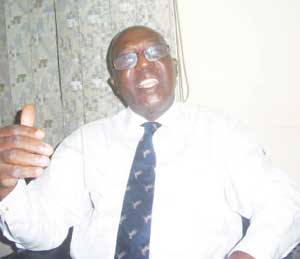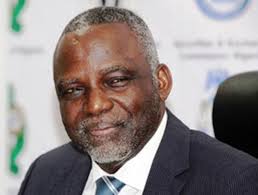Seyi Sowemimo, a Senior Advocate of Nigeria (SAN), in this encounter with Senior Correspondent, ONYEWUCHI OJINNAKA, speaks, among other issues, the conflicting judgments emanating from appellate courts and why many junior lawyers earn meagre salaries.
Recently, the Chief Justice of Nigeria (CJN) expressed worries over conflicting judgments emanating from the appellate courts. What is your position on the issue?
The people who occupy these courts are human beings and it is natural to have difference of opinions in the interpretations of the law. The only time you can criticise them is if a lower court derogates from the decision of the Supreme Court, which is the highest court in the land. But when you have a situation where two different divisions of the Court of Appeal come up with conflicting decisions, then one can accept that situation; it is legitimate. It is only when they depart from the decision of the Supreme Court or when the Supreme Court gives conflicting judgment that we now feel uneasy.
My position is that election cases and petitions throw up such sensitive issues that it is very difficult at times to account for the differences in opinions being voiced by different courts. Whatever the case is, it is not ideal that we should have decisions of the same court which are conflicting. This is because in that situation, we cannot provide good guidance for lawyers and litigants who will like to know exactly what the position of the law is.
The attack on judicial officers in Ekiti State last October has attracted serious condemnation from stakeholders. Recently, the Body of Senior Advocates of Nigeria (BOSAN), of which you are the secretary, added its voice in condemning the attack, describing it as a grave assault on the temple of justice. Are you satisfied with the way the matter was being handled?
I do not think the matter has been settled yet. At that time, there was a complaint that people who were acting for the present governor stormed the court and molested judges. I am aware that a report has been made to the National Judicial Council (NJC), and that the matter is being investigated. I am not aware that there is report or recommendations that has been made as a result of the investigation by the NJC. As it is now, I am personally quite uncomfortable with the situation in which the judges have to perform their functions in Ekiti State. This is because, without some indictments, it means that judges in Ekiti cannot act with much independence until some decisions are taken by the NJC.
In your view, what can BOSAN do to prevent recurrence of such attack?
You know the NJC is actually better positioned than any other organ to investigate this matter because it concerns the conduct of judges of the high court. I think BOSAN has to await for the outcome of the investigation being made before it can take a decision on this matter. I recall that Fayose said he had nothing to do with the people who invaded the court. So it will be wrong to begin to take a decision on the assumption that he was the one who instigated these people to invade the court.
The CJN, Justice Mahmud Mohammed, has expressed his preference for Alternative Dispute Resolution (ADR) mechanisms to decongest the courts. Do you think the arrangement will address the problem of delay in court process?
I do not think ADR is the way out. There are some types of disputes that can be settled by the ADR process. There are some disputes that are more complicated and need to go through a trial process. This delay is not confined to Nigerian courts alone, although we are justified when we complain of delay. All we have to do is continue to appeal to our judges, particularly the one at the high courts, to be more industrious in performing their functions. I think some judges could handle matters more speedily than they do at present. We need to appeal to judges at the trial courts for some increased productivity and that those who are appointed to the Bench should be seasoned practitioners. Most especially, those who are appointed to the Bench should be people from the Bar, people who have active practice. With that sort of background and experience, they can perform more efficiently at the high court level.
It is a different thing when you have someone who is coming from the practising Bar and somebody who is coming from the ministry or other places. Those coming from the ministry are not well exposed to the rigours of the trial process. You find that the output differs, depending on where they are coming from. Lawyers being appointed from the practising Bar are insufficient. Most of the people being appointed are either from the ministry or the magisterial Bench and other administrative positions. Naturally, it takes them time to come to grips with the duties they need to perform at the high court level. That is partly what is contributing to delay in our courts. They are not appointing the right calibre of professionals to man the high court Bench.
What is the connection between you and the former CJN, Justice George Sowemimo?
The late justice was my father and he was CJN between 1983 and 1985. He inspired me to opt for a legal career.
Did he influence your choice of legal career?
No, he inspired me. He was not the sort that dictates the choice of a career. But I was inspired by his achievements to also toe the legal line.
If you had opportunity to go to the Bench, would you have gone?
Well, what I am interested in is breaking new frontiers. My dad ended up as Chief Justice. Even if I were to go to the Bench today, the most I could also achieve would be Chief Justice of Nigeria, which would be simply treading along a beaten tract. I would rather break new grounds. I think I have more contributions to make through the practice of law than a Bench appointment. Today, the perception of the judiciary and the status that they used to command in those days are not what you have today. Really, if I had wanted to go to the Bench, it would have been many years ago.
Today, many people who are junior to me occupy positions on the Bench. My own mates at the Law School are on the Bench of the Court of Appeal and at the Supreme Court. Even you have people who are junior to me at the Bar who are now at the Supreme Court level.
So when you ask whether I will consider a Bench career, I would ask myself: where do I start from? It is too late in the day even to think of a career on the Bench. But, above everything else, I am quite satisfied with the Bar; it gives me greater inspiration, greater flexibility and more opportunity to contribute to the legal profession.
What is you assessment of the judiciary in the last 54 years?
I think the judiciary started well and has been doing well. Out of the various arms of government (executive, legislature and judiciary), you find that the judiciary has performed the best. It is because of its performance that we have enjoyed a measure of stability in this country. But I must observe that in the past few years, say like 10 years ago, the performance of the judiciary has been open to questions. There are instances where people have strongly suggested that judges have been compromised. This was more pronounced in the politics of the Third Republic. I think a lot needs to be done to ensure that our judges carry on their duties responsibly and without political interference. That is why I think the NJC really has a lot of job to do in ensuring that the very robust reputation which the judiciary used to enjoy is preserved.
What is your advice to younger lawyers?
I think any junior who wants to make quick money will find that practice at the Bar is not the place for him or her. It has always been the case that when juniors are starting out, they may not earn the sort of remunerations they consider adequate for their purposes. But I think most seniors will pay what they can afford. If a junior finds that a senior is not able to pay what he is really looking for, he is not obliged to work for that person; he can always look for some other law firms. But part of the problem I find these days is the low quality of law graduates being turned out. When they come into the chambers, they do not make a difference. You spend a number of years trying to tutor them, trying to make up for the shortcoming of the education which they received at the university.
You end up vetting and vetting letters which ordinarily are responsibilities you would have delegated out absolutely to a junior.
So my advice for them is that they should not be in hurry to make money. Hardwork should be the basic consideration for the new lawyers. They should be more interested in getting some satisfaction in the work they are doing. They should be more committed.
















